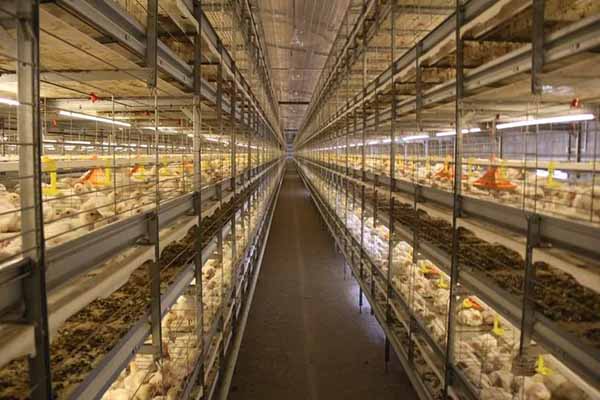Recommendation of Automated Egg Collection Equipment for Uganda Chicken Farms
Time : 2025-06-29
Automated egg collection equipment has revolutionized the poultry industry, offering numerous benefits to chicken farms worldwide. In Uganda, the adoption of such technology can significantly enhance the efficiency and profitability of chicken farming operations. This article aims to provide a comprehensive recommendation for the most suitable automated egg collection equipment for Uganda chicken farms, considering various factors such as local conditions, farm size, and egg production goals.
Introduction to Automated Egg Collection Equipment
Automated egg collection systems are designed to streamline the process of collecting eggs from poultry houses. These systems are particularly beneficial for large-scale chicken farms, as they minimize labor costs, reduce the risk of eggs being damaged, and ensure consistent egg quality. The technology has evolved over the years, offering various types of systems that can be tailored to meet specific farm requirements.
Factors to Consider When Choosing Automated Egg Collection Equipment
1. Local Climate and Environment
Uganda’s diverse climate ranges from tropical to temperate, which can impact the performance and longevity of equipment. It is crucial to select a system that can withstand the local environmental conditions and maintain optimal performance year-round.
2. Farm Size and Layout
The size of the chicken farm will determine the scale of the automated egg collection system required. Larger farms may benefit from multiple collection lines to handle higher production volumes. Additionally, the layout of the poultry house, including the placement of nests and collection points, should be considered to ensure efficient egg collection.
3. Egg Production Goals
Understanding the farm’s egg production goals is essential in choosing the right equipment. Factors such as the number of eggs produced daily and the expected growth in production over time should be taken into account.
4. Energy Efficiency
Energy consumption is a significant factor in operational costs. Selecting an energy-efficient system can help reduce electricity bills and contribute to a more sustainable farming operation.
5. Ease of Maintenance and Upkeep
Regular maintenance is essential for the longevity and performance of automated egg collection equipment. Choose a system that is easy to maintain and has readily available spare parts.
Recommended Automated Egg Collection Equipment for Uganda Chicken Farms
1. Slat Conveyor Systems
Slat conveyor systems are among the most popular automated egg collection equipment options. They consist of a series of slats that move eggs from the nests to a collection point. These systems are suitable for various egg sizes and are easy to integrate into existing poultry house layouts.
2. Egg Handling and Sorting Equipment
Once eggs are collected, they often require sorting to ensure they meet quality standards. Equipment such as egg washers, graders, and packagers can be integrated into the automated collection system to handle this process efficiently.
3. Egg Caging Systems
For farms with automated systems, egg caging systems can be installed to hold eggs until they are ready for packing. These systems are designed to prevent egg damage during transit and provide an organized storage solution.
4. Temperature and Humidity Control
To maintain optimal egg quality, it is crucial to control the temperature and humidity within the poultry house. Automated systems can include sensors and control units to regulate these conditions.
5. Integration with Farm Management Software
Consider integrating the automated egg collection equipment with farm management software. This allows for real-time monitoring of egg production, inventory management, and other farm operations.
Conclusion
The adoption of automated egg collection equipment can significantly improve the efficiency and profitability of Uganda chicken farms. By considering factors such as local climate, farm size, and egg production goals, chicken farmers can select the most suitable equipment for their operations. Investing in high-quality, energy-efficient, and easy-to-maintain systems will ensure long-term success and sustainability in the poultry industry.












